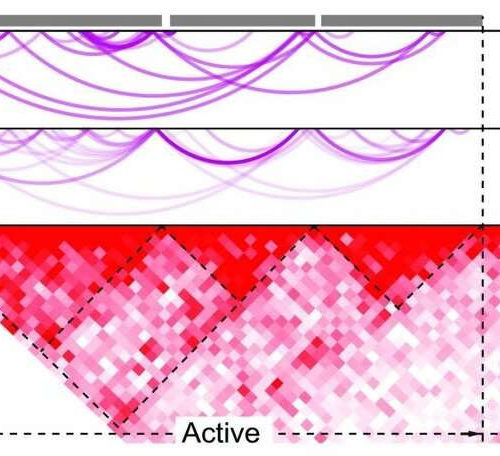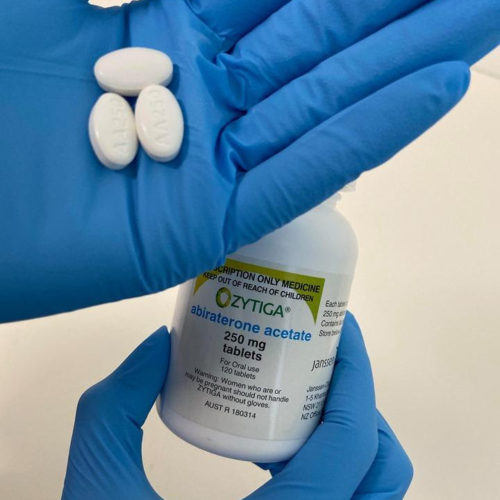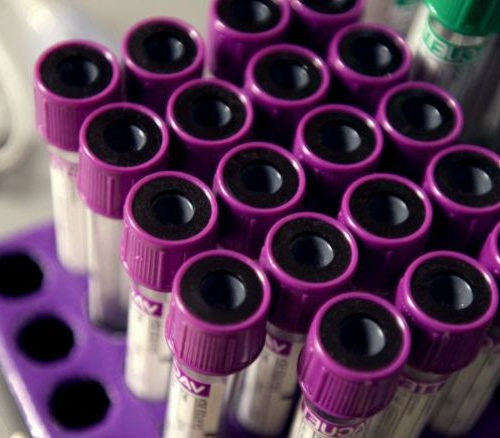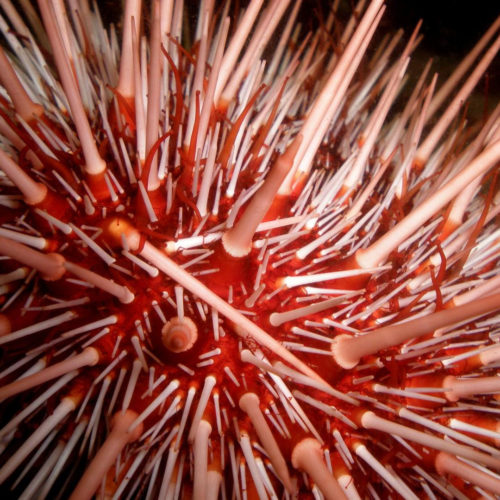by UT Southwestern Medical Center This graphic illustrates three-dimensional genome organization maps obtained form a representative metastatic cancer cell line. Credit: UT Southwestern Medical Center UT Southwestern researchers have identified vast webs of small snippets of the genome that interact with each other and with genes to promote prostate cancer. Their findings, published June 22...
Tag: <span>Prostate cancer</span>
BALDNESS MAY BE A RISK FACTOR FOR COVID-19
Two small studies published recently suggested most men hospitalized with Covid-19 are bald, generating headlines around the world. While this may sound strange, science does offer a plausible explanation. Male pattern baldness is associated with high levels of male sex hormones called androgens. And androgens seem to play an important role in the entry of...
Breakthrough discovery to transform prostate cancer treatment
A NOVEL FORMULATION OF THE PROSTATE CANCER DRUG ABIRATERONE ACETATE – CURRENTLY MARKETED AS ZYTIGA – WILL DRAMATICALLY IMPROVE THE QUALITY OF LIFE FOR PEOPLE SUFFERING FROM PROSTATE CANCER.view more CREDIT: HAYLEY SCHULTZ/UNISA A novel formulation of the prostate cancer drug abiraterone acetate – currently marketed as Zytiga – will dramatically improve the quality of...
PSA screening affords men long-term benefits, study finds
The benefits of the prostate-specific antigen (PSA) test to screen men for prostate cancer may be greater than the harm, according to a study published in the New England Journal of Medicine. Genitourinary cancer specialists from Seattle Cancer Care Alliance, University of Washington School of Medicine, Fred Hutchinson Cancer Research Center, and Weill Cornell Medicine...
Myriad prostate cancer test wins coverage from Aetna, other insurers
Myriad Genetics on Monday said insurer Aetna and two other health plans have agreed to cover its Prolaris genetic test that measures tumor cell growth to provide an assessment of how quickly a patient’s prostate cancer may progress. BlueCross BlueShield of Tennessee and a third insurer that Myriad did not identify by name will also...
Warburg effect: Sugar-tagging helps drug compounds to target human prostate cancer cells
Scientists of Far Eastern Federal University (FEFU), together with German and Russian colleagues, have developed a lead compound to fight chemotherapy-resistant prostate cancer. The original design comes out as scientists combine biologically active molecules from the chemically modified pigment of sea urchins with glucose molecules to deliver the active drug substance inward the tumor cells....
Bald men at higher risk of severe case of Covid-19, research finds
Researchers suggested that baldness should be considered a risk factor, dubbing it the ‘Gabrin sign’ By Jennifer Rigby 4 June 2020 • 8:33pm Bald men may be at higher risk of suffering from severe Covid-19 symptoms, emerging evidence suggests. The link is so strong that some researchers are suggesting baldness should be considered a risk...
Some types of prostate cancer may not be as aggressive as originally thought
by University of California, Los Angeles Researchers at the UCLA Jonsson Comprehensive Cancer Center analyzed gene-expression patterns in the most aggressive prostate cancer grade group—known as Gleason grade group 5—and found that this grade of cancer can actually be subdivided into four subtypes with distinct differences. The findings may affect how people are treated for...
PSA screening: Benefit does not outweigh harm
Some men benefit from an earlier cancer diagnosis; however, more men are at risk of overdiagnosis and treatment-related complications; studies have yet to show whether a risk-adapted approach will affect this conclusion The benefit of population-based PSA screening for men with an average risk of prostate cancer does not outweigh the harm caused. This is...
Sugars could be the key to an earlier, more accurate test for prostate cancer
A new type of test that uses complex sugars to detect prostate cancer earlier and with greater accuracy is being developed by researchers at the University of Birmingham. The test works by identifying sugars, known as glycans, in blood. These sugars are attached to protein molecules called PSA and are known to undergo distinct but...






